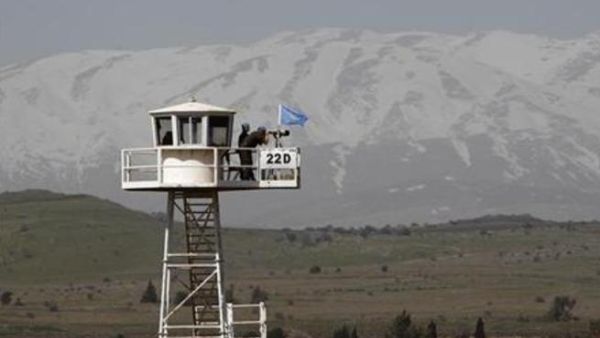The Israeli army fired on Sunday "warning shots" into Syria, according to Israel Radio. The Israeli army confirmed it had carried out the shooting after a mortar shell fired during clashes between rebels and forces loyal to President Bashar al-Assad , has accidentally landed in the occupied Golan Heights.
Israel's Haaretz daily website said that the Israeli Minister of Defense Ehud Barak warned last week that Israel would respond if Syria continued to fire into the Golan, stressing that "international concerns about civil war in Syria could trigger a regional conflict. "
According to the Israeli newspaper, the strike is part of an evolution of the Israel's attitude towards the Syrian conflict. "Israel has tried to stay out of the 19-month Syrian uprising," it said. Barak said last week that he hoped the rebels would win and Assad fall in order that "a new stage in the life of Syria would begin. '"
Opposition agreement
Meanwhile, the various components of the Syrian opposition on Sunday initialed an agreement on the formation of a "national coalition" to unify their efforts in the fight against the regime of Bashar al-Assad, said a leader of the opposition. The opposition is convened in the Qatari capital of Doha. "We signed the agreement", which is a compromise after intense negotiations between the opposition parties, including the Syrian National Council (SNC), indicated Sadreddine Bayanouni, former head of the Muslim Brotherhood in Syria.
Another opponent, Ziad Abu Hamdan, told AFP there was "no more divergence" between the components of the opposition and that discussions were now on "the formation of an interim government."
The meetings of the Syrian opposition began Thursday in Doha, under the auspices of the Arab League and Qatar. Until recently, the SNC was considered by the international community as the "legitimate interlocutor", but its lack of representativeness was increasingly criticized, particularly by the U.S. administration.
The latest agreement is the result of a compromise between the SNC and the rest of the groups that supported a plan based on the initiative of former MP Riad Seif for the establishment of an executive authority which may deal with the international community and directing aid. "The bottom line is that this is an agreement on the need to work for the downfall of the regime and that clearly specifies that there will be no dialogue" with Assad, said Hamadan.
The opposition elected a new president Friday, the Christian and ex-Communist activist Georges Sabra, known for his uncompromising positions who called in his first statement the international community to supply weapons to the Syrians fighting the regime.







